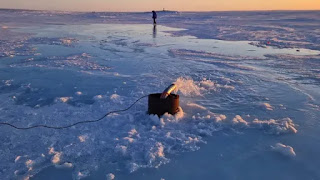What is climate change? A really simple guide

Human activities are causing world temperatures to rise, with more intense heatwaves and rising sea-levels among the consequences. Things are likely to worsen in the coming decades, but scientists argue urgent action can limit the worst effects of climate change. What is climate change? Climate change is the long-term shift in the Earth's average temperatures and weather conditions. Over the last decade, the world was on average around 1.2C warmer than during the late 19th Century. It has now been confirmed that global warming exceeded 1.5C across the 12 month period between February 2023 and January 2024. That followed 2023 being declared the warmest year on record. The temperature increase was driven by human-caused climate change and boosted by the natural El Niño weather phenomenon. How are humans causing climate change? The climate has changed throughout the Earth's history and natural factors, such as El Niño, can affect the weather for shorter periods of time, as happene...

